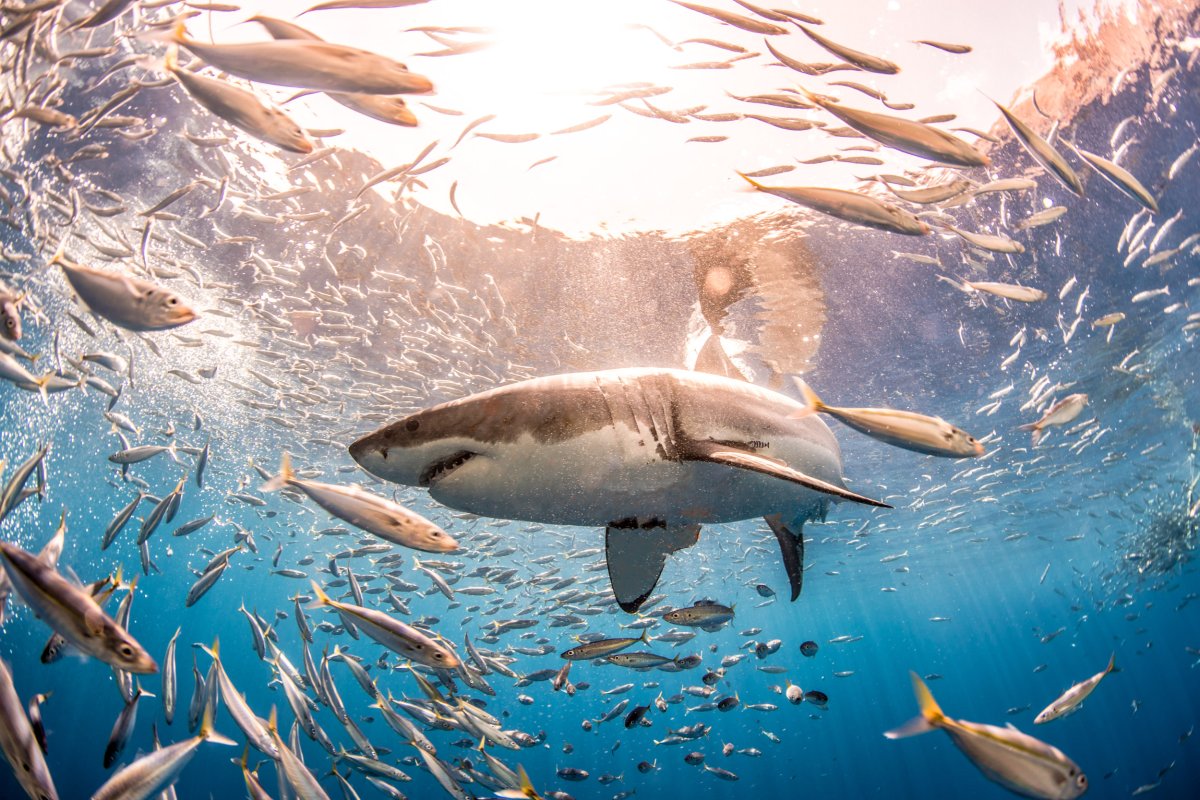Great white shark behavior may be more resilient than scientists originally thought, according to new research.
After tagging great white sharks with intelligence, researchers got a glimpse into how these ocean monsters really behave.It turns out that great white sharks are able to adapt their behavior to different hunting scenarios, rather than acting rigidly in the same way regardless of the environment, according to a new paper in the journal Ecosphere.
The great white shark is the world’s largest predatory fish, reaching a length of up to 20 feet. They are found in cooler coastal waters in several countries around the world, including the United States, Canada, South Africa, Australia and New Zealand. Their food mainly includes marine mammals such as seals, sea lions and small whales, as well as large fish such as tuna.
Researchers from Murdoch University, Oregon State University, Stanford University and California State University Monterey Bay tagged a total of 21 great white sharks of all ages with trackers. These sharks are found along the California coast in a variety of environments, from islands to shallow waters off the coast. The tags, which measure the shark’s location, depth and movement, are designed to remain attached to the animal for six days before detaching and floating to the surface.
ISTOCK / GETTY IMAGES PLUS
The researchers then collected the trackers and analyzed the data to determine whether the sharks behaved the same way at all locations or behaved differently in different environments.
They found that at all sites, sharks were more active during the day than at night, swimming up and down, twisting and turning, suggesting they were searching for prey. However, during dawn and dusk, they were more active only where there was more fish prey than mammalian prey.
Study author Oliver Jewell, a researcher at the University of Western Australia and a PhD student at Murdoch University, said: “We found that sharks from different regions had the greatest variation in movement, but the size of the shark and the time of day were also important. “. the candidate said in a statement. “This means the sharks are adapting their movements and routines to suit their local environment, rather than behaving the same way everywhere they find themselves.”
Adapting their behavioral patterns allows great white sharks to take advantage of local feeding opportunities and prey behavior, the researchers explain in their paper. In some areas of South Africa, fur seals are more vulnerable at dawn, leading to increased shark activity during this time. In contrast, in areas where seals shelter in kelp forests, sharks adjust by being active throughout the day to maximize their chances of finding prey.
California, meanwhile, provides an ideal location for this study because it is home to both adult and juvenile great white sharks and has a large amount of potential habitat for the sharks to pass through.

ISTOCK / GETTY IMAGES PLUS
“White sharks show up in the same areas of central California year after year, and some white sharks show up in the same spots for 30 years or more,” Jewell said. “We want to see what shapes their behavior there. actions and habits.”
The researchers hope their results and tagging techniques will help shark scientists better understand these behemoths and pave the way for further studies of shark behavior.
“Modern technology has given us unprecedented insights into the lives of some of the most difficult-to-study species,” study author Adrian Gleiss, a behavioral ecologist at Murdoch University, said in a statement. This in turn provides us with new insights into the functioning of the ocean.
Jewell agreed, adding, “Hopefully we can apply this research in many ways in the future—we’ve tagged more sharks in more areas and will conduct further research.”
Do you have an animal or nature story you’d like to share? Weekly newspaper? Do you have questions about great white sharks? Let us know at nature@newsweek.com.
uncommon knowledge
Newsweek is committed to challenging conventional wisdom and finding connections in the search for common ground.
Newsweek is committed to challenging conventional wisdom and finding connections in the search for common ground.
#Sharks #adapt #environments #time
Image Source : www.newsweek.com
